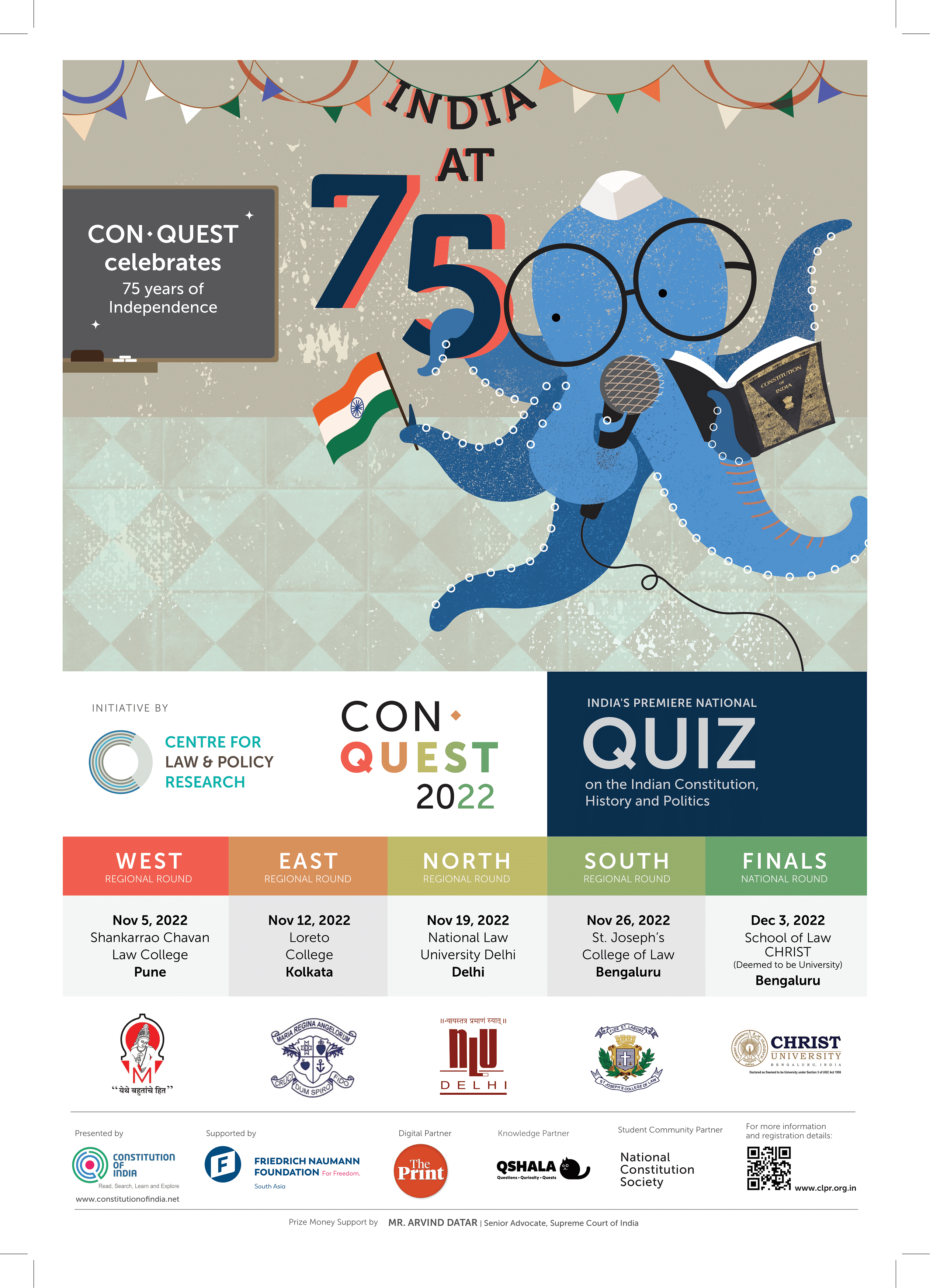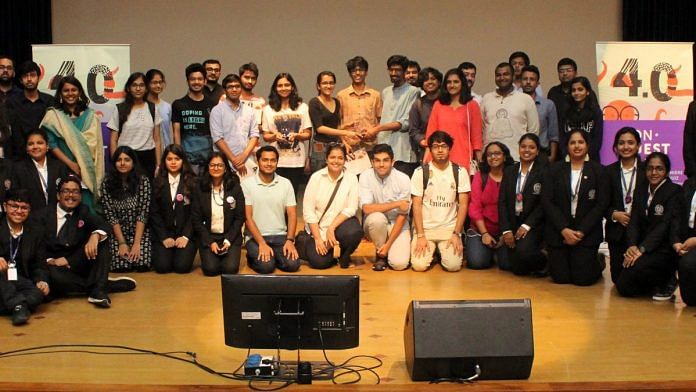Bengaluru: The Centre for Law and Policy Research (CLPR) is back with the sixth edition of ConQuest — India’s premier national quiz on the Indian Constitution, history and politics.
ConQuest is a part of CLPR’s larger Constitutional Culture initiative, which aims to facilitate public engagement with the Indian Constitution and its values. With quality questions and an exciting format, the quiz furthers this aim by encouraging students to celebrate India’s rich constitutional history and politics.
It is also an extension of constitutionofindia.net — a digital, open-access resource on India’s constitutional and political history, which includes a digitised, tagged and easily searchable version of the Constituent Assembly Debates.
ConQuest returns in-person after a hiatus of three years due to the Covid-19 pandemic, with the 2020 edition being held online. Bachelor’s and Master’s students from all disciplines can participate. Regional rounds for the quiz will take place across four consecutive Saturdays from 5 to 26 November 2022, to be held in Pune, Kolkata, New Delhi and Bengaluru, respectively. The top three teams from each regional round will battle it out at the National Finals, to be held in Bengaluru on 3 December 2022.

Also read: How two Gujarati monthlies covered Independence in 1947. Media today can learn a thing or two
Independence Movement and Constitution
The theme for ConQuest 2022 is the 75th anniversary of Indian independence. We join the rest of the country in celebrating this landmark moment.
But what exactly do we celebrate every year on 15 August ?
When most of us celebrate Independence Day, we revere the fact that we were liberated from British colonial rule and are not under the rule of any foreign land. We think about how India can determine its own political, social, and economic destinies, and take independent positions on world matters.
However, there is an aspect of Independence that we seldom meaningfully invoke or recall—the Independence Movement that brought us freedom as we know it. Sure, our social studies and civics classes at school communicated to us a sense of the valour and sacrifice that our freedom fighters embodied, and laid down the sequence of events that led to 15 August 1947. But do we fully appreciate and understand what made the movement so special and unique?
First, rarely in world history has non-violence and mass action been deployed together. Violence has always accompanied mass mobilisation toward a political outcome, as collateral or as a deliberate strategy. While there was certainly a strand of India’s Independence Movement that convinced that violence was the primary tool to achieve independence, this idea did not have purchase among India’s political mainstream. The genius of our Movement was that it combined non-violence with mass action.
Second, the Indian Independence Movement was not limited to asking the British to leave. It made the socio-economic transformation of India a crucial component of its agenda. ‘Quit India’ was not directed only at the British, but also at social practices of caste, gender and economic discrimination. We see this in Constitutional Antecedent documents – the documents that capture the historical development of the Constitution of India—such as the 1931 Karachi Resolution that called for an independent constitutional republic, and envisioned an India that gave to its people the rights to equality, non-discrimination and economic welfare.
And lastly, it was in the political churning of the Independence Movement that the Constitution of India was primarily forged. It was informed by the movement’s values and political practices. The leaders of the movement, many of whom became members of the Constituent Assembly, used their experience and learning to design our constitutional republic. When these leaders were arbitrarily arrested, imprisoned and denied basic civil liberties by the British colonial government, future constitutional provisions for the protection of freedom and civil liberties were taking shape in their minds.
Universal adult franchise — a rather novel constitutional choice for countries at the time — is intimately linked to the ‘mass’ nature of India’s Independence Movement where all Indians were encouraged to engage in nonviolent political action against the British. The fight for freedom was by all, and so, the people who would govern in an independent India would be elected by all as well.
Thus, an appreciation of the Indian Independence Movement as more than just an anti-colonial movement gives us something to think about beyond a celebration. It starkly reminds us that the movement’s aim to transform India’s oppressive social and economic structures remains spectacularly unfinished.
At ConQuest 2022, we will bring to life the people, events and ideas that were central to India’s Independence Movement and highlight its inextricable link with our Constitution through a fun and rigorously researched question bank.
Parts of this article first appeared on Constitutionofindia.net on 15 August 2022
ThePrint is the digital partner for the event.
Visit the official website to register and know more details. Follow CLPR on Twitter @CLPRtrust.



